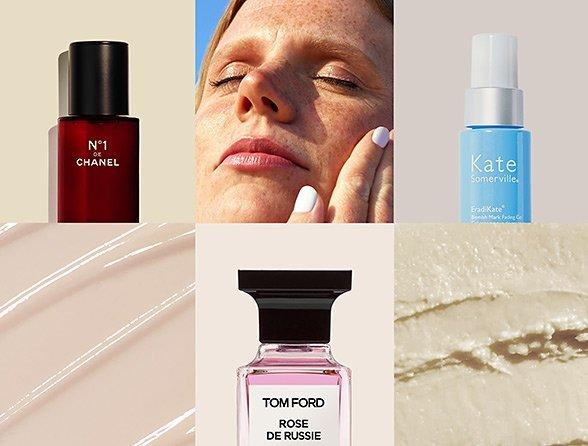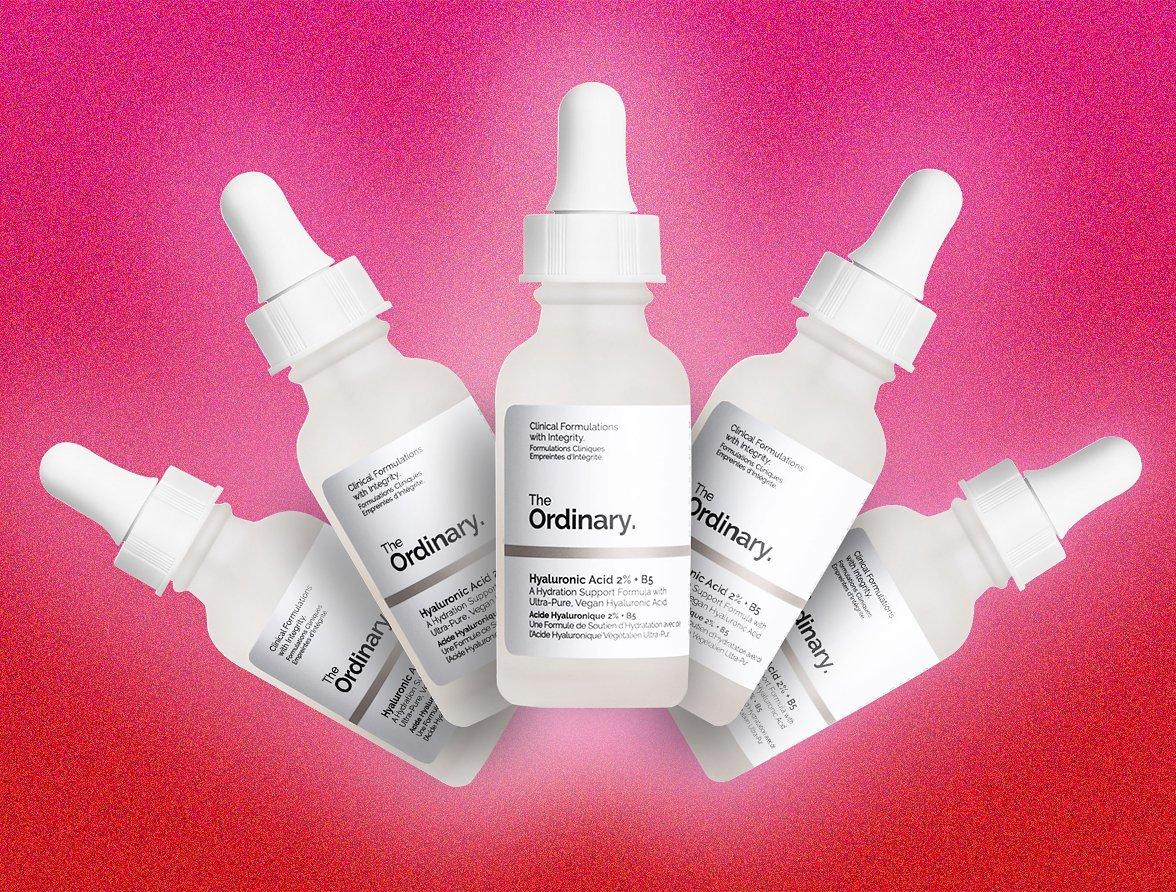Give your skin its bounce back by boosting your collagen levels
A vital part of the skin’s support structure, collagen decreases as we age. However, there are ways to preserve and even increase it…
Picture a brand-new, straight-from-the-showroom mattress. The expensive kind, with tightly coiled springs, a mohair filling and a 500-count organic sateen, hand-stitched casing. Now picture said mattress 20+ years later, after a few heavy-handed house moves, innumerable spillages and serving as the kid’s bouncy castle. By then, that impeccable item may be looking a little less pristine…
If the analogy has escaped you, the mattress in question is, of course, our skin, and that sumptuous casing around it is the collagen. A beauty buzz-word for good reason, collagen is a protein found across the entire body and makes up 75% of the skin’s support structure. The bad news is that after the age of 20, our skin produces about 1% less collagen each year, a decline that picks up pace during and after the menopause, resulting in a somewhat less-than-perky mattress.
‘Collagen levels decrease and deplete naturally throughout our life,’ confirms Dr Aggie Zatonska, an ear, nose and throat surgeon and the founder of Atelier Clinic, a boutique practice specialising in aesthetic treatments. ‘Smoking, high sugar consumption, unprotected sun exposure and pollution all damage collagen, causing the skin to thin as well as suffer a loss of firmness and elasticity. This is further impacted by hormonal changes; and in the first four years of menopause, collagen synthesis decreases by up to 30%.
So how do we preserve this precious skin scaffolding for a younger-looking complexion, and is it possible to boost levels? ‘A healthy diet rich in antioxidants, regular use of SPF, and evidence-based skin care can all help to preserve our collagen reserves,’ reassures Dr Aggie.
To discover her detailed advice for looking after your collagen, read on…
Collagen creams vs collagen-boosting creams
Let’s start by making the distinction between creams that contain collagen and those designed to rev up collagen production in our skin. ‘Topical application of collagen is ineffective,’ is Dr Aggie's opinion. ‘The molecule is too large to penetrate the skin barrier. So, to stimulate collagen production, we need to use targeted skincare ingredients, collagen-stimulating treatments and oral collagen supplements.’
Plump it up
According to Dr Aggie, there are four main types of skincare ingredient that can help boost the collagen levels in our skin:
- Antioxidants: ‘L-ascorbic acid (the most active form of vitamin C), tocopherol (vitamin E) and niacinamide (a form of vitamin B3) have the ability to penetrate the skin barrier and protect collagen from damage by free radicals,’ she explains. ‘They can also stimulate production of new collagen. L-ascorbic acid at 5-15% concentrations induces production of type I-III collagen, while niacinamide regulates cellular metabolism and cell regeneration.’
- Retinol and its derivatives: ‘Topical application of this active form of vitamin A has a direct effect on collagen metabolism, helping to improve the appearance of photo-aged skin,’ says Dr Aggie. ‘Several products containing retinol are available over the counter. However, prescription-only strength retinoids are the most potent and require a consultation with a specialist.’
- Peptides and growth factors: ‘These proteins play an important role in signalling between cells, and impact the regulation of various cell functions, such as collagen production and the prevention of collagen degradation,’ she explains.
- MSM: ‘This is a naturally occurring sulphur that protects collagen and increases collagen and keratin formation to help improve skin elasticity,’ says Dr Aggie.
Pretty pills
The old adage ‘you are what you eat’ carries some truth: collagen has worked its way into the supplement sphere, too. But can popping a pill really lead to a perkier complexion? ‘Preliminary results are promising for the use of oral collagen supplements to help with wound healing and skin ageing,’ explains Dr Aggie.
Evidence is emerging that collagen peptides may strengthen the dermis by inducing collagen synthesis. ‘Oral collagen supplements are generally a combination of specific peptides,’ Dr Aggie continues. 'Although initially sceptical but having now seen the growing evidence of skin improvement, I have incorporated a good-quality, hydrolysed marine collagen supplement in my own practice.’
Evidence-based skincare, combined with collagen stimulating treatments and collagen supplements, can significantly improve skin elasticity and hydration, she says. ‘Collagen supplements deliver “building blocks” that can be easily utilised by the skin while it's recovering from the treatments,’ Dr Aggie adds. ‘What’s more, collagen supplementation is generally safe, with no reported adverse events.’
Collagen clinic
Skincare and supplements aside, there is also a plethora of in-clinic treatments or ‘tweakments’ designed to kickstart collagen production in the quest for a more youthful complexion. ‘There is a wide range of treatments that can boost new collagen production,’ confirms Dr Aggie. ‘They can be confusing so I would recommend a detailed skin consultation with an experienced aesthetic medicine practitioner in order to devise an individual treatment plan to identify and address specific needs. The following are among the treatments commonly used to boost collagen levels.’
- Chemical peels (AHA, BHA) – ‘Superficial peels (Alpha and beta hydroxy acids and TCA) are used to exfoliate the epidermal layer of the skin, stimulating collagen production without causing significant down time.’
- Micro-needling (MN) and Radio Frequency (RF) – ‘Micro-needling (which involves pricking the skin with tiny, sterile needles) induces collagen and elastin production through controlled trauma by stimulating the body’s natural repair response. RF is based on introducing an electric current underneath the epidermis. It is a minimally-invasive procedure that improves skin tightening and collagen contraction. Micro-needling is often combined with RF to deliver the treatment to the deeper layers of skin.’
- Skin boosters (such as Profhilo) – ‘These are a cosmetic treatments which use small injections of a unique hyaluronic acid product to hydrate the skin from within and stimulate collagen production.’




